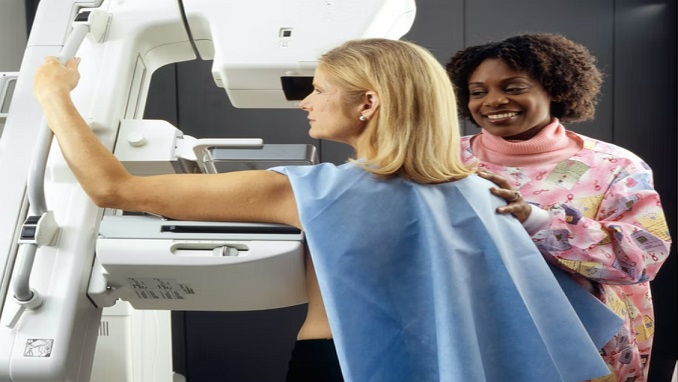People with metastatic HER2-low breast cancer – whose tumors don’t have high levels of the protein – up until now had limited treatment options. But they have now been given a new weapon in their cancer fight.
The U.S. Food and Drug Administration (FDA) approved on Friday – four months ahead of the Prescription Drug User Fee Act (PDUFA) deadline – the first therapy “targeted to patients with the HER2-low breast cancer subtype, which is a newly defined subset of HER2-negative breast cancer.”
AstraZeneca and Daiichi Sankyo’s Enhertu (fam-trastuzumab-deruxtecan-nxki) is “an IV infusion for the treatment of patients with unresectable (unable to be removed) or metastatic (spread to other parts of the body) HER2-low breast cancer”.
FDA noted in its press release that “patients with HER2-low breast cancer are eligible for Enhertu if they have received a prior chemotherapy in the metastatic setting, or their cancer returned during, or within 6 months of completing, adjuvant chemotherapy.”
The drug received priority review and breakthrough therapy designations for this indication.
Emphasizing FDA’s commitment to making targeted cancer treatment options available for more patients, Richard Pazdur, M.D., Director of the FDA’s Oncology Center of Excellence and Acting Director of the Office of Oncologic Diseases in the FDA’s Center for Drug Evaluation and Research, stressed that “having therapies that are specially tailored to each patient’s cancer subtype is a priority to ensure access to safe and innovative treatments.”
The National Cancer Institute defined the HER2-low tumors, which account for about 50%–60% of all breast cancers, “as those whose cells contain lower levels of the protein on their surface.”
Previously in July, NCI informed, citing clinical trial results, that people with metastatic breast cancer who were treated with Enhertu ”lived nearly twice as long without their cancer growing, and lived 6 months longer overall, than those treated with standard chemotherapy.”
Funded by Daiichi Sankyo and AstraZeneca, the DESTINY-Breast04 clinical trial “enrolled 557 adults who had metastatic or inoperable HER2-low breast cancer and had previously been treated with one or two types of chemotherapy.”
New methods of assessing HER2 levels are needed
Oncologist Patricia LoRusso, D.O., Ph.D., of Yale Cancer Center, who was not involved with the study, pointed out that “we must also rethink novel, more accurate and sensitive ways of assessing [a tumor’s] HER2 status,” since “pathologists do not always agree when it came to distinguishing between HER2-low and HER2-negative breast cancers using immunohistochemistry”.
According to the NCI’s data, “It is estimated that 287,850 new cases of female breast cancer will be diagnosed in 2022 in the U.S.
FDA noted in its press release that “approximately 80-85% of those new cases were previously considered to be HER2-negative subtype (including hormone receptor-positive and triple-negative breast cancer), which means the tumors do not overexpress or make too many copies of the HER2 protein.”
LoRusso also noted that new tests that can detect lower HER2 levels are in the development phase “but are not yet ready for use in everyday patient care.”




